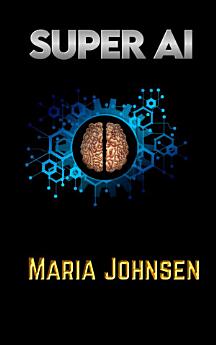Super AI
About this ebook
While we’re still some years away from achieving AGI, the future of AI is incredibly promising. Advanced AI systems are already pushing the boundaries of what AI can do in specific domains, and breakthroughs in reinforcement learning, hybrid AI, and neuroscience-inspired systems are bringing us closer to creating a more general intelligence.
The next phase of AI development will likely involve creating systems that can better generalize across tasks, exhibit some form of reasoning, and interact with the world in more human-like ways. Alongside this technical progress, we must also continue to explore the ethical implications and establish frameworks to ensure that this powerful technology is used for good.
The journey to Super AI is just beginning. While we have a long road ahead, every new development brings us one step closer to understanding and creating intelligent systems that can think and reason across a wide range of tasks. But it’s up to us to ensure that this future is one where AI works in harmony with humanity, rather than against it.
Super AI explores the development of autonomous and superintelligent AI, focusing on the crucial role of mathematics and calculus in powering these advanced systems. It delves into the technologies like deep learning, neural networks, and robotics, and explains how mathematical principles are essential for creating AI that can think and act independently. We also examine the challenges of building superintelligent AI, including control issues, ethical concerns, and the immense computational power required. Offering a comprehensive view, it considers both the technical and philosophical implications of achieving superintelligence. My research also discusses the potential for spreading wealth among individuals not as a mere aspiration, but backed by mathematical equations and concrete proof.
By harnessing AI’s capabilities, we can open the door to a future where technology drives equitable prosperity for all. In this book, I do not talk about creating super Intelligent AI with human conscious but what could happen if we do. In my book, super AI, I discussed many aspects of super intelligent AI. I break down what my book Super AI is really all about. I share my concerns about the future of AI.
My book answers the following questions:
Understanding Super AI and Its Evolution
What is Super AI, and how does it differ from current AI technologies?
How has artificial intelligence evolved from narrow applications to the concept of superintelligence?
What are the key traits and capabilities of Super AI, and how do they compare to human intelligence?
What philosophical foundations are necessary for understanding the development of Super AI?
Technological Foundations of Super AI
How do deep learning, neural networks, natural language processing, and computer vision enable machines to interact with the world?
What role do robotics, autonomous systems, and quantum computing play in advancing Super AI?
Challenges in Developing Super AI
What are the major challenges in developing Super AI, such as alignment, control, and ethical concerns?
How do we balance the benefits of Super AI with the risks of potential misuse or unintended consequences?
What ethical considerations should guide the development and implementation of Super AI across different industries?
Societal and Economic Impacts
How could Super AI impact society in terms of economic disruptions, workforce changes, and privacy issues?
How can society prepare for economic challenges as automation and AI continue to advance?
What specialized skills will humans need to develop in a world where robots increasingly replace human labor?
How can the algorithms behind Super AI be used to promote wealth distribution and create new job opportunities?
Governance, Policy, and Global Competition
What political challenges arise in governing Super AI and ensuring it benefits humanity?
What steps can be taken to ensure that Super AI is developed and used in a way that benefits all of humanity?
How could Super AI revolutionize sectors like healthcare, social good, and global competition?
Existential and Philosophical Questions
What existential questions does Super AI raise about humanity’s future in a world where machines could surpass human intelligence?
What is the concept of the technological singularity, and how might it affect human society?
What does the future of meaning and purpose look like in an AI-driven world?
Could Super AI lead to a utopian or dystopian future, and what factors influence this outcome?
The research also discusses the potential for spreading wealth among individuals not as a mere aspiration, but backed by mathematical equations and concrete proof.
About the author
Maria Johnsen is a multidisciplinary innovator whose work bridges artificial intelligence, robotics, and digital engineering with narrative design, pedagogy, and cross-cultural strategy. With 97 published titles spanning AI, human-computer interaction, autonomous systems, and multilingual communication, she uniquely combines technical expertise with creative synthesis. As founder of Golden Way Media, Maria drives global innovation by applying AI-driven solutions to complex multilingual markets, fostering systems collaboration and meaningful human-centered design.
Also a musician, Maria weaves storytelling into music and film, blending diverse genres with deep emotion and creativity.








